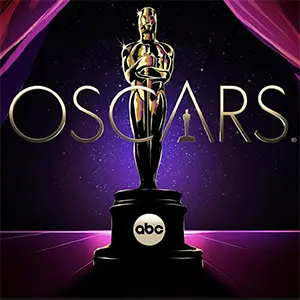It's okay to have a boring Oscars
-

Will Packer, producer of the 94th Academy Awards, has taken a lot of heat for his efforts to make Sunday's ceremony more entertaining, from pre-taping eight categories before the ceremony to adding unconventional presenters like Tony Hawk and Shaun White. "But," asks Stephanie Zacharek, "what if a little—or even a lot of—boring is exactly what the Oscars show needs? The one thing you can’t control in advance about it, the human element, is also the unruly component that makes it great." The Academy Awards, says Zacharek, aren't designed to have nonstop excitement. "Who are we kidding?" says Zacharek. "Even the most memorable Oscar broadcasts were always dotted with long, dull stretches that would have all of us on the East Coast watching the clock, wondering when we’d finally get to bed, and perhaps feeling jealous of our West Coast counterparts, who at least had the luxury of being able to go out afterward for a drink or slice of pie. Which is why the current efforts to make the show less boring—and thus hopefully boost ratings, even in a changed world where fewer and people watch television in the traditional way—come off as so much wasted energy. Adding a few out-there presenters, like skateboard and/or snowboard whizzes Tony Hawk and Shaun White, isn’t the worst idea—maybe they’ll be fun. But all the behind-the-scenes plans we’ve heard about so far simply give off a whiff of trying too hard. Even if we have to wade through some sluggish moments, why can’t we just revel in the human element of the Oscars? Why can’t we just let them breathe? The Oscar show has fallen prey to our false notion that we can control everything, when in reality the event is an organic entity that its creators can only partly work out in advance."
ALSO:
- Will Packer feels he needs to be "fearless" as Oscar producer: Packer says he has listened to the criticism, “but I feel very strongly about the way that I want to do the show this year. And I think that’s the only way that I would sign up to do it. To do a show like this, you’ve got to be fearless.” Packer says his "fearless" approach is necessary. “I want people to be talking about the Oscars in a Wal-Mart in Dallas versus just the happening restaurant in Beverly Hills,” he adds.
- Regina Hall and Wanda Sykes on divvying up hosting duties and preparing for the ceremony along with fellow co-host Amy Schumer: Hall, Sykes and Schumer will all be out to open the show, but then they'll split up. “It might be one of us, it might be two of us, we all might be drunk, so it might be nobody,” says Sykes. “We all get our moment together and we get our moments alone.” What has it been like collaborating? "How you get to the material, I think, is to like and dislike and discuss," says Hall. "That’s how you really create things. I don’t think that things have to move completely smoothly to be wonderful. What we appreciate in the collaboration is having each other’s ideas be heard." Sykes adds: "We’ve been really upfront and open to each other’s opinions and saying, 'I don’t think that works for me' or 'Oh, I love that!'" Hall adds: "Or 'Here’s what would make it work even better.' That’s the joy of having Wanda and Amy: Sometimes there’s a good idea, but then somebody takes that idea to the next level."
- Can TikTok save the Oscars?: "As TikTok moves closer to the center of the social media landscape, it’s found an especially avid audience in movie fans and aspiring filmmakers," says Savannah Walsh. "With an algorithm seemingly designed to reward clever editing, imaginative mash-ups, or mind-boggling visuals, TikTok offers a daily lesson in cinematic storytelling. And for up-and-coming filmmakers, it’s an essential venue for showing off their craft." Walsh adds that the Oscars have begun to recognize the importance of Tiktok, inviting one prominent TikToker to co-host a nominations recap last year with Eugenio Derbez. The Academy, however, hasn't been as quick to embrace the social media platforms. But, Walsh adds, "we may not know the true extent of TikTok’s influence on the Oscars until it gets a shout-out in an acceptance speech a decade or two from now—if not sooner."
- Oscars tighten COVID protocols ahead of Sunday's ceremony
- Here are 10 shocking things that could happen during the 94th Academy Awards
- Ranking every type of Oscar acceptance speech
TOPICS: 94th Academy Awards, ABC, Amy Schumer, Regina Hall, Wanda Sykes, Will Packer, Award Shows, Coronavirus, Film Academy, Social Media, TikTok
More 94th Academy Awards on Primetimer:- Will Smith Apologizes to Chris Rock in Emotional Video: 'I Am Deeply Remorseful'
- Wanda Sykes is "still traumatized" by Will Smith's Oscar slap of Chris Rock: "I can't talk about it. I get emotional"
- Chris Rock on when he'll discuss being slapped by Will Smith: "I’ll get to it eventually, on Netflix"
- The Oscars' controversial “Fan Favorite” and “Cheer Moment” awards may have been rigged by bots
